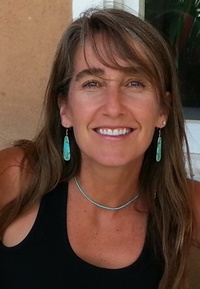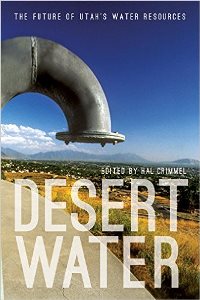Sustainability Begins in the Classroom
Award-winning faculty inspires students to make sustainable changes
Every day at his job at a local thrift store, Matthew Booth watched as outdated electronic devices that had been donated to the store were thrown into the dumpster. Booth, who had been greatly influenced by Sara Dant’s environmental history course in Weber State University’s College of Social & Behavioral Sciences, was troubled that the devices — many of them reusable — were being taken to the landfill rather than being recycled. Told the store could only keep current devices, he decided to act.
“Instead of throwing the electronics into the dumpster, I began storing them in a bin. I would empty the devices into my car at the end of each day and personally drive them to a nearby business that recycled electronic waste,” said Booth, a 2014 sociology graduate.
He didn’t stop there. Dant also connected Booth with an organization that supplies secondhand computers to low-income families.
His efforts did not go unnoticed. The thrift store’s corporate office soon decided to implement the e-waste recycling program at the Ogden location where Booth worked.
Booth is now a graduate student at Utah State University, studying the socioeconomic factors that influence electronic waste recycling. “I hope I can someday find a way to implement change on a much larger scale,” he said.
Dant said Booth’s motivation to make a change is one of her most memorable experiences as a professor. “Matthew was able to use the knowledge and research skills he gained in my class to completely turn around the corporate practices of his employer,” she said. “He made them far more environmentally sustainable.”
Sustainability Honors
In the classroom and in her research, Dant focuses on the American West, environmental politics and climate history. She has written a number of articles and essays, including “Going with the Flow: Navigating to Stream Access Consensus,” which was featured in WSU English professor Hal Crimmel’s book “Desert Water: The Future of Utah’s Water Resources.” Two of Dant’s social and behavioral sciences colleagues, geography professors Dan Bedford and Eric Ewert, also contributed essays to the book.
For their work, Dant, Crimmel, Bedford and Ewert earned WSU’s 2015 Faculty Sustainability Research Award.
“Desert Water” provides an extensive view of water concerns in Utah. These issues are also relevant beyond Utah, as many areas of the country and the world are suffering from problems caused by lack of water. The book draws attention to these issues through analytical and personal essays, and emphasizes that, through awareness and education, feasible solutions to climate problems can be achieved.
Crimmel is pleased that WSU recognizes work in sustainability. “By thinking about sustainability we can improve the health of individuals, communities, and regions,” he said. “We can also help ensure a future that is environmentally and economically secure.”
Crimmel, with documentary filmmaker Issac Goeckeritz, a 2012 WSU geography graduate, wrote and produced a film based on chapters from “Desert Water.” Titled “Water in Utah,” the film will be presented at WSU by the Weber Historical Society October 19 at 7 p.m. in the Hurst Center Dumke Legacy Hall. The event is free and open to the public.